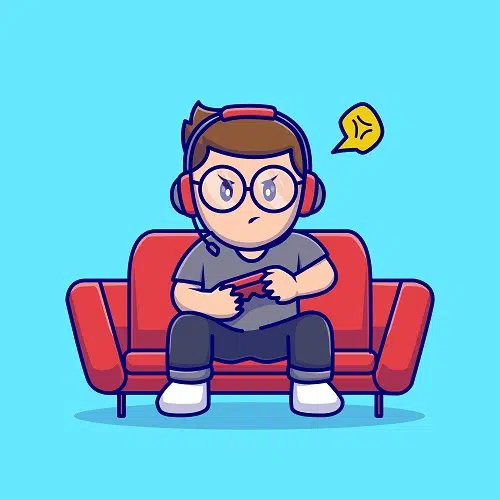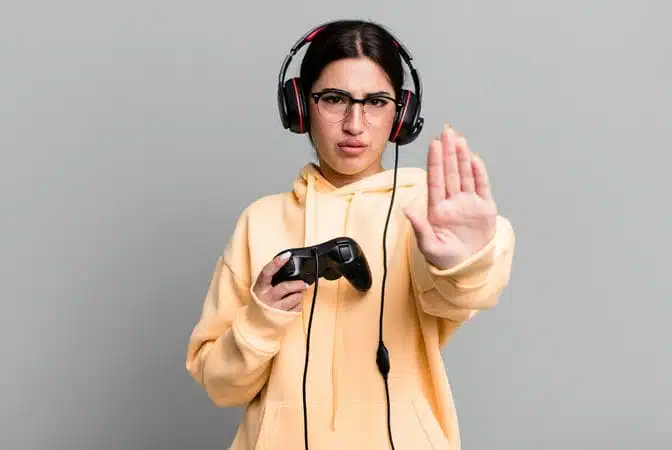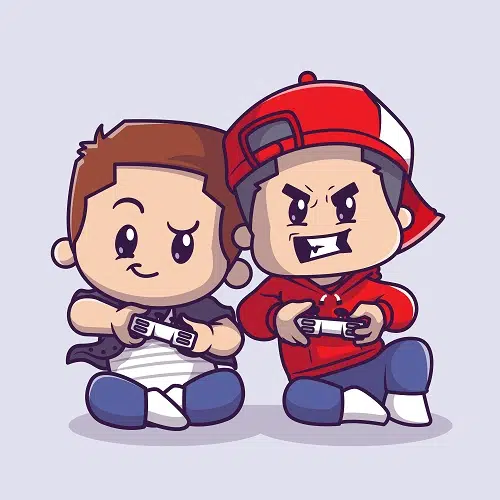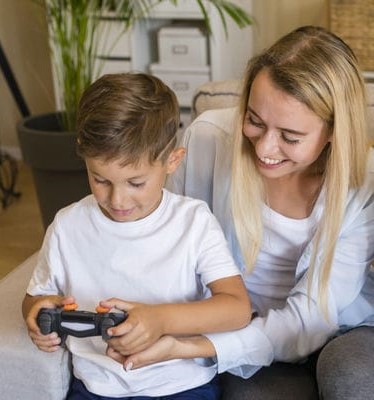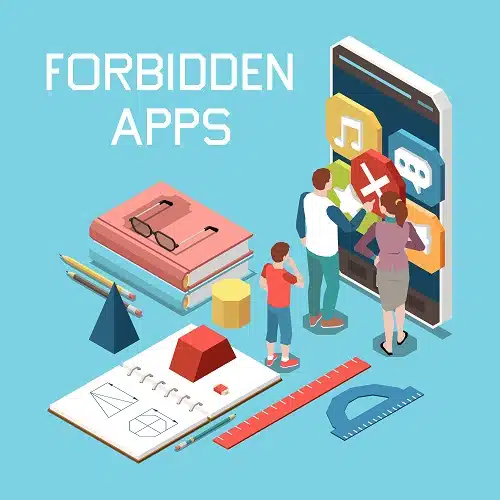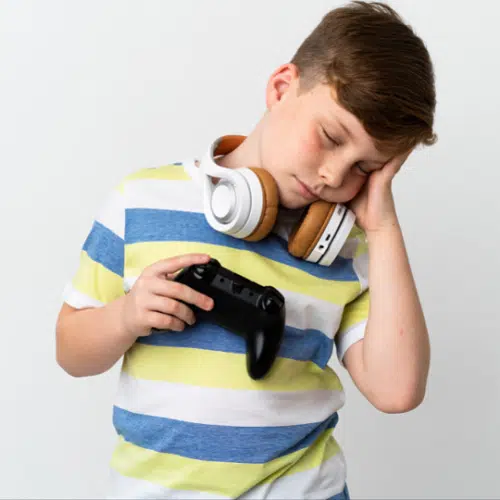If your child is playing games to the point it is interfering with other aspects of their lives, you may be curious if you can curb their addiction. Gaming addiction is very real, and for many parents, the question of how much is too much is an important one to understand. But if you are worried that your child’s game time is starting to become excessive, there are options.
These strategies can help your child develop a plan to help bring the hobby into a healthy place. If you are concerned your child may have a severe problem, consult a licensed therapist or psychiatrist. Remember that often an addiction can be linked to deeper and more complicated emotional issues. Read on to discover ways you can break a gaming addiction.

Try and Put the Gaming Addiction into Perspective
Ask yourself what your child’s game time does to their lives. Think about the other aspects of life that can bring happiness and satisfaction.
These could be:
- School
- Sports
- Family Time
- Social Life
- Other Hobbies
If their time spent on gaming starts to detract from these other life areas, try and illustrate it. If you can, explain how gaming is not the center of life. Develop a strategy to communicate the illusory nature of video games and how they are often an escape from the real world. Video games are fun, but once they start to eat away at the other parts of your life, you should step back.
The time spent playing games comes from somewhere. To illustrate this, you may want to try a time audit. This is when you track every moment of the day in 15-minute intervals. Consequently, your child may open up to the idea that gaming is eating away at the majority of their free time.
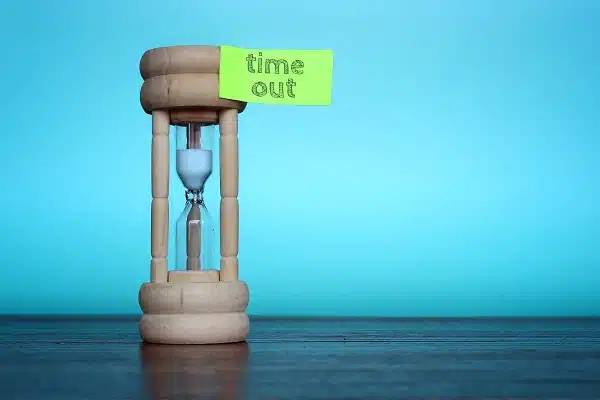
Set Reasonable Timeframes
While cutting gaming out cold turkey may seem like the way to go, keep in mind your child needs to develop a healthy relationship with gaming. Understanding that moderation is key can help your child tackle the gaming addiction and carry that experience to other parts of their lives.
To establish a proper time frame, take a look at your child’s schedule. To make sure you are not taking away from other parts of their lives and treatment, be strategic when you allow them to the game. Take into account school and other activities.
Here are some examples:
- In the afternoon, after school.
- On the weekends in the evening
- After chores are done for the day
- Before dinner
As long as their gaming time is not interfering with anything else, it can be appropriate. This will teach your child that gaming is a hobby best done when more important tasks, like homework, are complete.

Teach Your Child About Moderation
Moderation is an important lesson to learn, especially when younger. Video games, much like other electronic stimuli, affect our brain’s reward system. When we play games, we get rewarded. This creates dependence. But that does not mean it is wholly a bad thing.
Video games can be a great stress reliever. In another way, they are a form of visual art created by devoted and passionate individuals. They may seem like time-wasting junk, but if you can move past the prejudice, there are many reasons to play video games.
But understanding that there is too much of a good thing can be essential to your child’s growth and development. Moderation is key when it comes to video games. Playing for just an hour a day or every few days can help your child learn not to abuse gaming and develop a healthier relationship with their hobby.
Moderating game time can:
- Help disconnect the brain’s dependence on games.
- Make gaming time more special.
- Cause the brain to focus on other tasks for their reward pattern.
Make Sure You Set Rules and Stick to Them
Rules are hard for kids to understand. In the same way, they are hard to follow. They are also hard to enforce. When the time comes, it’s hard to deny your child something they enjoy. Whether it is gaming, eating, or staying up late, being firm with your rules is essential to cracking a gaming problem.
Here are a few rules you may want to implement:
- No gaming after dark.
- Homework and chores should be finished before game time.
- No gaming on school nights
Keeping these rules enforced will mean that your child is in a consistent environment. This will help condition the healthy boundaries you are trying to set. These rules are only impactful if you can enforce them all the time. In contrast, even one-time exceptions can peel back weeks of work. You may encounter whining, excuses, or even tantrums but stick to your guns.

Gaming Should be Special and a Reward
Another way you can help your child moderate their gaming addiction is to use gaming as a reward. This can be a great strategy that healthily reframes game time. It also provides the child with a system to earn game time.
A reward system can:
- Be a smart way to manage game time.
- Allow your child to still enjoy playing video games.
- Teaches a framework to manage responsibilities
Game time should be special. You want your child to be able to enjoy gaming healthily and reasonably. Giving them goals to shoot for can be a great strategy. Once they have reached those goals, then they can earn time playing their favorite games.
Some examples of goals could be:
- Maintaining a certain grade average at school.
- Keeping up with chores throughout the week.
- Providing hours of volunteer work.
- Time spent practicing for a sport or instrument.
- Spend the whole afternoon with family.

Use Tools to Enforce Rules
Remember, you are not alone in your path to breaking your child’s gaming addiction. Not only are there lots of parents and professionals willing to help, but there are also tools you can use to help enforce rules.
Since most people game with the internet, you can use tools to limit access. These can be installed on multiple fail-safes to ensure your child isn’t gaming. Kids are clever, and if you think they won’t try to work around your roadblock, you may want to reassess your situation.
Some solutions, like using a kitchen timer to measure gaming time, are more straightforward.
But if you are interested in blocking internet access, you could:
- Use your router’s security settings to block specific MAC addresses. After you block their MAC address, that device won’t be allowed to access the router.
- Block certain sites and domains from your computer using a firewall.
- You can set lockout times for your child’s devices. This will prevent them from using electronics when you don’t want them to.
If you are looking for more physical solutions, you could:
- Take away certain parts – You could take away their controllers, the games themselves, a TV, or better yet, the power cords.
- Move the gaming equipment to a common area – This will prevent them from gaming unsupervised.
Keep Tabs on Your Child’s Game Time
Keeping track of your child’s gaming time can not only help you organize treatment, but it will also help quantify how much gaming they do. As we talked about earlier, a time audit can be a great starting point. But once you have accomplished that, there are some other strategies you can implement.
The problem with video games is that they are intended to be immersive. Similarly, they are designed to take on your full attention. Because of this, time spent playing video games can fly by. When you get lost in a game, you can easily watch several hours go by without notice.
To help combat this, you could:
- Have your child use a stopwatch to track gaming hours.
- Keep a log of all the hours spent gaming.
- Set alarms to stop game time.
Showing your child in quantifiable terms how much they are gaming can be a wake-up call. Putting into perspective all those hours can be a great motivator for future change. It also, in a way, gamify the whole experience. Tracking progress can show your child their accomplishments and be a great incentive to game even less!

Find the Right Games
Not all games are created equal. Some games are geared towards long play hours and social interaction. In these cases, a person can get sucked up into the experience and spend hours playing without notice. One of the big culprits in this category are games called MMORPG, or Massive-Multiplayer Online Role-Playing Games.
But not all games cater to this type of playstyle. Some are more fast-paced and can be taken in short intervals. Similarly, some games are geared towards more mature audiences and certainly aren’t appropriate for kids. These can be shooter games or others that are intensely popular with kids these days.
A new form of gaming that has become popular in recent years is games where you create. These are open-ended “sandbox” style games and can certainly eat up hours of the day. While they may not be violent or engage in the same way as other games, you should still be cautious.

To help you find games that will help your child, here are some examples:
- RTS – Real-time strategy games can be either online or standalone. They often incorporate historical education, as well.
- Sports Games – You can find sports games in any sport you can think of, and they can often get a full game in a short period of time.
- Puzzle Games – These are great for stimulating the mind and can often be found on smaller devices like smartphones and tablets.
Try and Help Your Child Discover new Activities
Once you have started to chip away at your child’s video game problem, you need to find hobbies to fill that time. Failing to find suitable activities to fill the time can result in falling back on bad habits. To prevent this from occurring, you should plan out some hobbies as part of your strategy. Of course, you should consider your child’s likes and dislikes.
You should try and not just fill that time with tasks or activities that your child might consider a chore or labor. Keeping things fun and engaging can be a great way to keep the work you’re doing permanently. Consequently, you may even find a hobby that your child enjoys even more than video games.
Here are some things you might try:
- Outdoor recreation.
- A crafting hobby like woodworking or robot building.
- Something still involving electronics like coding or design.
- Drawing, painting, or a musical instrument.
At first, you’ll want to keep things diverse. After that, once you have found your child’s activities, you can start waning down how much you are doing. Finding new hobbies allows the brain to find new sources of pleasure that aren’t games. This will help “rewire” the brain to not want to game frequently.

Find an Accountability Buddy
Your child does not have to take on this thing alone. While they know you are always on their side, having someone they can either relate to or confide in can be very impactful. This can be someone going through similar issues or can be someone they are close with. The former should be directed by a professional/support group.
As far as someone they can confide in, this can be a close friend or a family member. You may hope that you can be this person for your child but think about your role. In the same way that you are their friend, you need to take on an authoritative role in their treatment in this instance.
Finding a good accountability buddy to talk to can:
- Help keep urges to game under control.
- Provide extra support.
- Find the origin of the gaming issue through engaging conversations.
Understanding that they are not alone is incredibly important. Having an accountability buddy can give your child someone they can talk to when they are weak, when they want to game, or just when they want to talk.
Try and Help Them Understand How Their Addiction Works
Addiction is not something to be ashamed of. Understanding how addiction works and how it does not discriminate can be a powerful message to hear. Also, explaining addiction allows for a more tangible perspective on what is going on. We all can become addicted. It’s just how our brains work.
Our brains, as advanced as they are, still operate on some old software. Because of this, you may not even notice an addiction starting to take hold as your brain just sees the reward you are getting. This happens in your subconscious, and by the time you realize there may be an issue, your child may already be dependent.
Understanding that this dependency is cheating the brain out of real experiences can help your child understand why they feel so attached to gaming. Our brains crave pleasure chemicals, and they don’t care if it’s video games or hard work that gives it to them. Consequently, you can become numb to other forms of pleasure because games are seen as an easy option.
To help your child understand what is happening, here are a few key concepts:
- Our brain’s reward system – Our brains are designed to reward us. This can come in the form of food, love, and physical activity.
- How we learn – The same pathways that reward us also have a part to play in learning. This is how our brains learn to associate gaming with reward.
- Tolerance – The more we game, the more we build the tolerance to that particular stimulus creating a desire to game even more.
- Compulsion takes over – Once your brain knows that gaming can get it the reward it wants, it will do all it can to get you to the game.
Find Something You Can Quit With Them
We all have our vices. Coffee in the morning, a cigarette/e-cig, and sweets; these are all things we lean on for a small dose of pleasure throughout the day. While they may not have the time-killing power as video games, you can still commit to quitting or moderating one of your vices to match your child’s effort.
This can be an excellent way to show support. Just as your child is yearning for the game, so too will you want your coffee in the mornings. It creates a sense of unity and even teamwork to be in on a commitment together.
It also shows your child that you are also willing to change. Quitting, or moderating, something with them can demonstrate your commitment to helping them get better. This illustrates your compassion in a more impactful way.

There are lots of tiny things you can sacrifice:
- Excessive eating
- Your time-consuming hobbies
- TV
- Sugary drinks
Conclusion
Video game addiction is very real, and for some kids, it can get out of control. Keeping in mind these strategies and combining them will help you create a plan to control your child’s gaming habits. If you are concerned that your child’s problem may be severe, always contact a professional for help.









